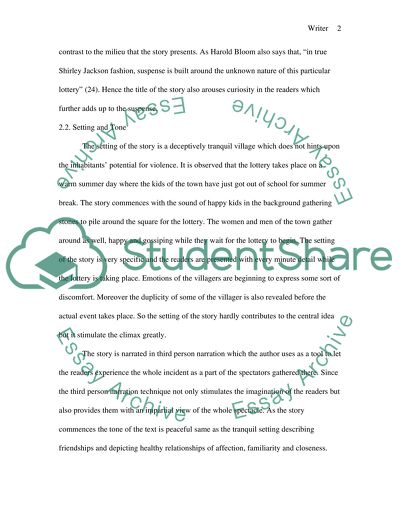Cite this document
(“Analysis Of Lottery By Shirley Jackson Research Paper”, n.d.)
Retrieved from https://studentshare.org/literature/1438615-critical-analysis-of-the-short-story-name-the
Retrieved from https://studentshare.org/literature/1438615-critical-analysis-of-the-short-story-name-the
(Analysis Of Lottery By Shirley Jackson Research Paper)
https://studentshare.org/literature/1438615-critical-analysis-of-the-short-story-name-the.
https://studentshare.org/literature/1438615-critical-analysis-of-the-short-story-name-the.
“Analysis Of Lottery By Shirley Jackson Research Paper”, n.d. https://studentshare.org/literature/1438615-critical-analysis-of-the-short-story-name-the.


